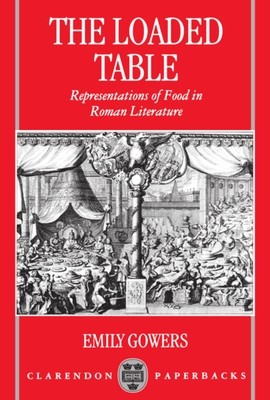
- We will send in 10–14 business days.
- Author: Emily Gowers
- Publisher: Clarendon Press
- ISBN-10: 0198150822
- ISBN-13: 9780198150824
- Format: 13.8 x 21.5 x 2.1 cm, softcover
- Language: English
- SAVE -10% with code: EXTRA
Reviews
Description
This book offers a novel approach to Roman culture, looking at food as it is represented in literature. Although not generally thought of as the noblest of literary subjects, this view is a legacy from the Romans, so it is curious that Roman writers chose so persistently to depict their society at the dinner table. Why this was so, and what effect the inclusion of food had on the status of the literary texts that contained it, are among the questions discussed here. The book also addresses many of the problems that arise when a material subject is translated into words, and contains fresh interpretations of Latin texts that have been unjustly undervalued--comedy, satire, epigrams, letters, and iambics. While often regarded as something trivial, food was in fact one of the most suggestive images for Roman civilization.
EXTRA 10 % discount with code: EXTRA
The promotion ends in 19d.03:33:04
The discount code is valid when purchasing from 10 €. Discounts do not stack.
- Author: Emily Gowers
- Publisher: Clarendon Press
- ISBN-10: 0198150822
- ISBN-13: 9780198150824
- Format: 13.8 x 21.5 x 2.1 cm, softcover
- Language: English English
This book offers a novel approach to Roman culture, looking at food as it is represented in literature. Although not generally thought of as the noblest of literary subjects, this view is a legacy from the Romans, so it is curious that Roman writers chose so persistently to depict their society at the dinner table. Why this was so, and what effect the inclusion of food had on the status of the literary texts that contained it, are among the questions discussed here. The book also addresses many of the problems that arise when a material subject is translated into words, and contains fresh interpretations of Latin texts that have been unjustly undervalued--comedy, satire, epigrams, letters, and iambics. While often regarded as something trivial, food was in fact one of the most suggestive images for Roman civilization.


Reviews